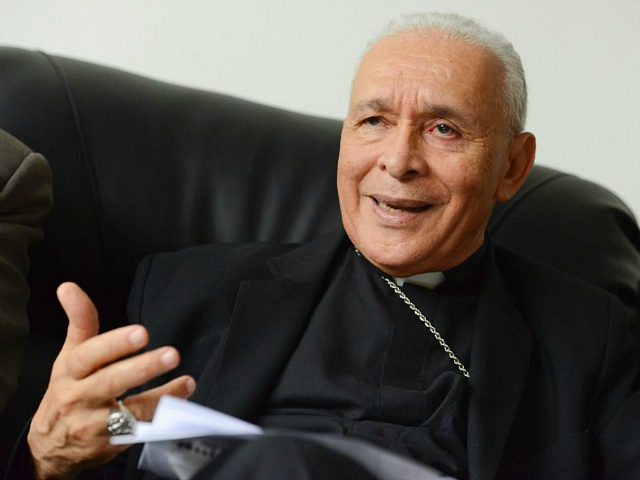The Episcopal Conference of Venezuela (CEV) has published a letter sent to dictator Nicolás Maduro demanding that he cancel a plan to draft a new socialist constitution, following remarks by Monsignor Diego Padrón referring to Maduro’s government as a “dictatorship.”
The CEV’s letter and condemnation of the socialist regime are the latest acts of resistance by Venezuela’s Catholic leadership, which has consistently supported the opposition even as the Vatican and Pope Francis have called for dialogue. The letter, dated July 8, makes three demands of Maduro personally “to resolve the grave crisis of food and medicine shortages and instability,” among them the full recognition of the legitimacy of the opposition-held National Assembly and an end to attacks on the nation’s attorney general.
The letter also demands that Maduro “end” attempts to assembly a parallel “constituent’s assembly” to usurp the powers of the National Assembly and rewrite the constitution and that he “implement agreements reached in the first round of dialogue with the opposition.”
The letter also notes that “the Holy Father Francis has been following with great concern the situation that our Venezuelan people are living in and has directed to us on repeated occasions supportive words of solidarity.” Pope Francis has welcomed Maduro to the Vatican and repeatedly demanded dialogue with the socialist regime, which opposition members have dismissed as allowing the government more time to violently suppress peaceful protests.
“We ask God to illuminate you and grant you the audacity necessary to allow the country a democratic exit, and guide you to the path of coexistence, justice, and peace,” the letter concludes.
While the Vatican has called for dialogue, Venezuela’s Catholic leadership has not shied away from condemning Maduro’s government instead of blaming both sides for the discord. In remarks on July 7, a day before the CEV reportedly sent Maduro their letter, Monsignor Diego Padrón, the president of the CEV, decried the regime as a “dictatorship” and called for peaceful resistance.
“Today in Venezuela there is not a proper ideological conflict, but a struggle between a government that has become a dictatorship and an entire people who demand liberty and eagerly seek, risking the lives of the young, bread, medicine, security, work, and just elections,” Padrón said.
#CVIIIAsambleaCEV pic.twitter.com/GD3PhhLwGK
— CEV (@CEVmedios) July 10, 2017
Padrón had previously warned that the “constituent’s assembly” would lead to a “military dictatorship” in Venezuela.
The current wave of protests in Venezuela, now lasting for 102 days, began after the Supreme Court attempted to invalidate the authority of the National Assembly and replace it with itself, establishing the judiciary as the legislative body of the nation. While the Supreme Court ultimately rescinded its ruling granting itself lawmaking powers, protests persisted, and Maduro addressed the failure of this move by calling for drafting a new constitution that would strip the National Assembly of its power.
To draft the new constitution, Maduro has called for elections to create a “constituent’s assembly” staffed by socialists. As recently as May, the state-run propaganda outlet VTV claimed that Maduro’s relationship with the Catholic Church was friendly and soun and that they would play a part in aiding with the constitutional process.
“A new stage in the relationship with the Venezuelan Catholic Church’s bishops has been initiated,” Maduro said that month. The remarks followed a turbulent Lent, however, in which chavista gangs repeatedly attacked Catholic churches. As early a February, colectivo socialist gangs had begun interrupting Catholic Mass and forcing believers to listen to socialist diatribes instead of their usual sermons.
By Holy Week in April, colectivos were attacking Catholic services where they knew opposition leaders were worshipping. On Holy Thursday – which Catholics observe as the day of the Last Supper – gangs broke into a Caracas Mass led by the city’s archbishop, Jorge Urosa Savino, and assaulted him and those praying. The government published an Easter message reading, “Christ is Chavista,” shortly after this attack.

COMMENTS
Please let us know if you're having issues with commenting.